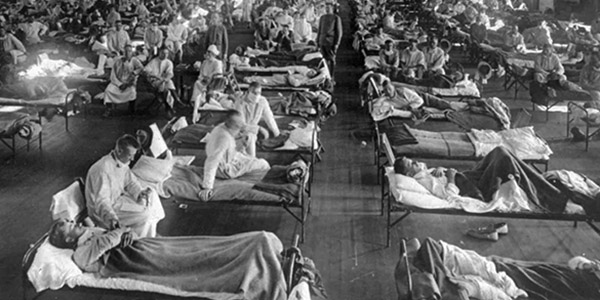Recommended perspectives from beyond our academic community
How Pandemics Seep Into Literature
Elizabeth Outka, in The Paris Review

Research and Perspectives for the Pandemic
Main Page | Elective Affinities
EXCERPT | APRIL 8. 2020 | THE PARIS REVIEW
"In October of 1918, a delirious Katherine Anne Porter experienced what she termed 'the beatific vision.' Close to death from the novel influenza virus that would kill 50–100 million people, Porter felt transported to a paradisal landscape, one free of the pain and fear that had overtaken her body. To the surprise of all, she survived her illness, and later transformed the experience into her powerful novella Pale Horse, Pale Rider. That story is one of the few literary works directly about the pandemic that killed more people in the United States than the country lost in all the twentieth- and twenty-first-century wars, combined. The experience, Porter said, 'simply divided my life … and after I was in some strange way altered … it took me a long time to go out and live in the world again.'
"Covid-19 promises to alter us all in strange ways. It’s a paradigm-shifting event that divides lives and cultures into a before and after. We will emerge changed, though how those changes will manifest is far from certain. The sensory details of this outbreak—the masks, the faces of doctors and nurses creased with worry and fatigue, the closure signs, the antiseptic smells, the empty streets, the stacks of coffins—will weave their way into our minds and bodies, triggering us back to this moment years in the future."
Full commentary in The Paris Review